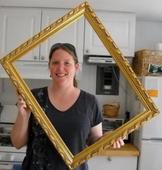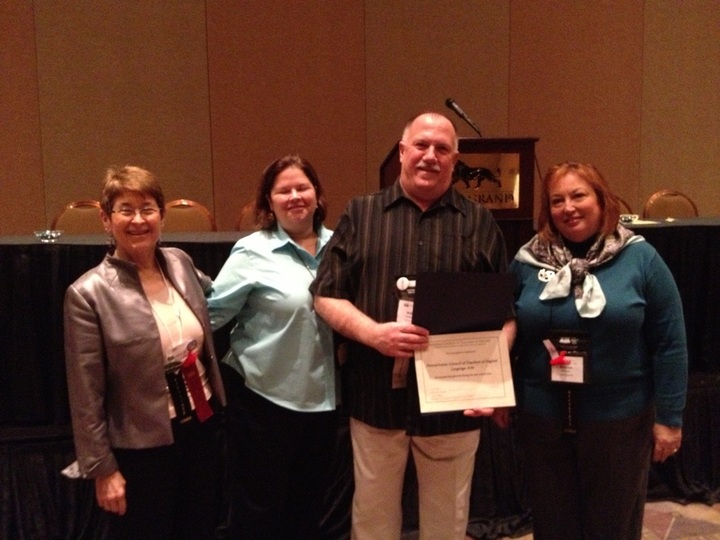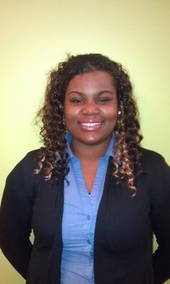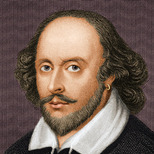The PCTELA Newsletter - Year 2012-2013
Table of Contents
Welcome to Digital!
Hello PCTELA! I would like to welcome you to our first all digital issue! This new format will give us the opportunity to offer our membership information in a brand new way! More pictures, more in depth content, and more PCTELA as we have gone away with the restraints of a traditional newsletter! I welcome everyone to share your contributions and ideas for future issues as we continue to grow! Remember to find us on Facebook and Twitter as I look forward to hearing from you!
Jonathan DeBor
Communications Director
pctelanews@gmail.com
Jonathan DeBor
Communications Director
pctelanews@gmail.com
PCTELA Conference 2013

Kate Hoffman, NBCT and 2013 PCTELA Conference Chair
Dear PCTELA members and friends,
Teaching can be exhausting. With all the planning, teaching, reflecting, meeting, phone-calling, emailing, and grading, it is hard to imagine how we manage the overwhelming list of things we accomplish in day while still managing family and, and if you’re lucky, sleep!
However, there’s a solution to the energy drain: conferences! Early in my career I discovered that attending conferences energized me in ways I hadn’t imagined possible. Having the opportunity to spend time talking to other educators who love their students, love their content, and love their jobs is amazing. Having the opportunity to share ideas, consider new technology, and talk with authors is inspiring. Then, returning to my classroom bursting with new ideas, new connections, and new colleagues to consult makes the conference worth it.
I am serving as this year’s state conference chair and I’m excited to share with you our conference theme for 2013: Transforming Teaching: Navigating our Rapidly Shifting Profession. At this conference, we’ll talk about the ways our profession has changed, and will change. We’ll share best practices and generate new ideas for our classrooms.
We have an exciting line-up of authors and educators as well. Donalyn Miller, best know as the Book Whisperer, will address the general assembly and also run a small hands-on workshop for a limited number of teachers. Jordan Sonnenblick, educator-turned teacher, will address the general assembly and also run a workshop for local middle school students and middle-level teachers. Additionally, we have Sara Kajdar, an English Education professor, and author of Bringing the Outside In: Visual Ways of Engaging Reluctant Readers. Last, but certainly not least, Tawni O’Dell will close out the conference on Saturday. Tawni’s book, Back Roads, will be released as a film early in 2013 starring Jennifer Garner.
One new addition will be an afternoon “Roundtable Session” on Friday. This will allow attendees to talk with other teachers over refreshments in an intimate setting about a variety of topics.
Over the past fifteen years of teaching, conferences have become my favorite way to connect with like-minded educators. I look forward to meeting you at this year’s conference, and I encourage you to contact me with any questions, ideas, or if you would like to volunteer to help out before, during, or after the conference.
Dear PCTELA members and friends,
Teaching can be exhausting. With all the planning, teaching, reflecting, meeting, phone-calling, emailing, and grading, it is hard to imagine how we manage the overwhelming list of things we accomplish in day while still managing family and, and if you’re lucky, sleep!
However, there’s a solution to the energy drain: conferences! Early in my career I discovered that attending conferences energized me in ways I hadn’t imagined possible. Having the opportunity to spend time talking to other educators who love their students, love their content, and love their jobs is amazing. Having the opportunity to share ideas, consider new technology, and talk with authors is inspiring. Then, returning to my classroom bursting with new ideas, new connections, and new colleagues to consult makes the conference worth it.
I am serving as this year’s state conference chair and I’m excited to share with you our conference theme for 2013: Transforming Teaching: Navigating our Rapidly Shifting Profession. At this conference, we’ll talk about the ways our profession has changed, and will change. We’ll share best practices and generate new ideas for our classrooms.
We have an exciting line-up of authors and educators as well. Donalyn Miller, best know as the Book Whisperer, will address the general assembly and also run a small hands-on workshop for a limited number of teachers. Jordan Sonnenblick, educator-turned teacher, will address the general assembly and also run a workshop for local middle school students and middle-level teachers. Additionally, we have Sara Kajdar, an English Education professor, and author of Bringing the Outside In: Visual Ways of Engaging Reluctant Readers. Last, but certainly not least, Tawni O’Dell will close out the conference on Saturday. Tawni’s book, Back Roads, will be released as a film early in 2013 starring Jennifer Garner.
One new addition will be an afternoon “Roundtable Session” on Friday. This will allow attendees to talk with other teachers over refreshments in an intimate setting about a variety of topics.
Over the past fifteen years of teaching, conferences have become my favorite way to connect with like-minded educators. I look forward to meeting you at this year’s conference, and I encourage you to contact me with any questions, ideas, or if you would like to volunteer to help out before, during, or after the conference.
Upcoming Calendar of Events
PCTELA 2013 – State College, PA – October 25 and 26
PCTELA Executive Council Meeting - State College, PA – October 26 (at end of conference)
NCTE 2013 – Boston, MA – November 21 - 24
PCTELA EXECUTIVE COUNCIL RETREAT – SPRING OR SUMMER 2014
PCTELA 2014 – Western PA - October
PCTELA 2015 – South Central PA - October
PCTELA Executive Council Meeting - State College, PA – October 26 (at end of conference)
NCTE 2013 – Boston, MA – November 21 - 24
PCTELA EXECUTIVE COUNCIL RETREAT – SPRING OR SUMMER 2014
PCTELA 2014 – Western PA - October
PCTELA 2015 – South Central PA - October
NCTE Affiliate Awarded to PCTELA!

On behalf of the organization, PCTELA Executive Director Bob Dandoy accepts the NCTE Affiliate Award for Membership Recruitment at the Affiliate Breakfast at the National Convention in Las Vegas, NV. From Left to Right Millie Davis ( Director of the Division of Communications and Affiliate Services for NCTE), Glenda Daulerio (PCTELA Membership Secretary and Region 2 Representative for the Standing Committee on Affiliates (SCOA) of NCTE), Dandoy, and Barbara Wahlberg (Award Presenter and Region 1 Representative for the Standing Committee on Affiliates (SCOA) of NCTE).
Astrology and Education

Ralph Maltese, 2002 PA Teacher of the Year
From my history, I seem to remember that Copernicus was an astrologer attempting to find a more accurate prediction of the orbits of the heavenly bodies. Astrology wasthe science of the day, and the more precise the descriptions of the orbits, the more street cred awarded the astrologer. Of course, Copernicus and colleagues had a bad initial premise since they used a geocentric model of the universe with the earth at the center instead of the more accurate heliocentric prototype with the sun at the center of the solar system. In China, anyone, save for the emperor’s court astrologers, who practiced the craft, would face death as a punishment.
One might think that we have come a long way since the days of dependence on the “scientific” attributes of astrology, but I think we still have legacies from what most educated people today would term a discredited science. We still refer to giants of the stage and screen as “stars.” More importantly, we still make important decisions based on the orbits of heavenly, and perhaps not so heavenly, bodies---namely, the bodies of human beings. Of course, gravity holds the human body to the earth which actually does the orbiting, but the result is the same. When a young person’s body has orbited the sun 16 times, in some states that person is ready to learn to drive. The voting age in all states is predicated on the number of times a person’s body has circled the sun, and the collective wisdom of the populace of many states is that when a person’s person made 21 complete orbits of the sun, he or she is mature enough to imbibe alcohol, as if the completion of so many trips around our closest star contributes to our wisdom and judgment.
This dependence on counting the revolutions of our bodies around the sun as integral to our decision making process is no more evident than in education. When a child has circled Mr. Sun 6 times, he is school ready. Fourteen revolutions and we can expect the student to tackle geometry. Sixteen orbits and we can roll out the chemistry lab equipment as well as introduce the student to a foreign language. Most of our expectations of what a child can learn and can do are based on, if we think about it, rather arbitrary standards.
I wonder what schools would look like if we took the “counting revolutions of the body” out of the equation? Would there be grades? For the sake of reference, I will use the old measurements (number of orbits a student completes around the sun.) Suppose a student seems ready to be challenged by developing geometric theorems when she is 8 rather than 12. Can we accommodate her? And suppose the same student is not reading at “grade level” (whatever that means---orbits again). Can we accommodate that growth or lack thereof as well? Could we have a sliding scale?
And what about social promotion? If a student still does not demonstrate the ability to multiply, do we keep him in the same class forever? Could we possibly have a student whose body orbited the sun nineteen times sitting in a math class populated by students most of whom have only circled the sun ten times? If we rebuild curricula so that it is predicated on skill sets rather than content, would our picture look radically different?
The problem, as I see it, is that the current model of schools is still the factory model, and students progress along an assembly line whose benchmarks remain arbitrarily designed. We not only continue to lose students who are not quite ready for those arbitrary standards, but we also cast aside whole generations of students who are ready for a great deal more. My son once asked me, “Dad, why do I have to do 100 problems of the same type for homework when I know how to do it after 10 problems? “ My answer was, “Because the teacher assigned it.” But that answer is about encouraging my son to play at the game of school rather than about learning.
I wish I had the answers to all this. I expect that since my body has orbited the sun over 60 times, I would have developed a modicum of wisdom, but in this area, I still seem to be not ready.
From my history, I seem to remember that Copernicus was an astrologer attempting to find a more accurate prediction of the orbits of the heavenly bodies. Astrology wasthe science of the day, and the more precise the descriptions of the orbits, the more street cred awarded the astrologer. Of course, Copernicus and colleagues had a bad initial premise since they used a geocentric model of the universe with the earth at the center instead of the more accurate heliocentric prototype with the sun at the center of the solar system. In China, anyone, save for the emperor’s court astrologers, who practiced the craft, would face death as a punishment.
One might think that we have come a long way since the days of dependence on the “scientific” attributes of astrology, but I think we still have legacies from what most educated people today would term a discredited science. We still refer to giants of the stage and screen as “stars.” More importantly, we still make important decisions based on the orbits of heavenly, and perhaps not so heavenly, bodies---namely, the bodies of human beings. Of course, gravity holds the human body to the earth which actually does the orbiting, but the result is the same. When a young person’s body has orbited the sun 16 times, in some states that person is ready to learn to drive. The voting age in all states is predicated on the number of times a person’s body has circled the sun, and the collective wisdom of the populace of many states is that when a person’s person made 21 complete orbits of the sun, he or she is mature enough to imbibe alcohol, as if the completion of so many trips around our closest star contributes to our wisdom and judgment.
This dependence on counting the revolutions of our bodies around the sun as integral to our decision making process is no more evident than in education. When a child has circled Mr. Sun 6 times, he is school ready. Fourteen revolutions and we can expect the student to tackle geometry. Sixteen orbits and we can roll out the chemistry lab equipment as well as introduce the student to a foreign language. Most of our expectations of what a child can learn and can do are based on, if we think about it, rather arbitrary standards.
I wonder what schools would look like if we took the “counting revolutions of the body” out of the equation? Would there be grades? For the sake of reference, I will use the old measurements (number of orbits a student completes around the sun.) Suppose a student seems ready to be challenged by developing geometric theorems when she is 8 rather than 12. Can we accommodate her? And suppose the same student is not reading at “grade level” (whatever that means---orbits again). Can we accommodate that growth or lack thereof as well? Could we have a sliding scale?
And what about social promotion? If a student still does not demonstrate the ability to multiply, do we keep him in the same class forever? Could we possibly have a student whose body orbited the sun nineteen times sitting in a math class populated by students most of whom have only circled the sun ten times? If we rebuild curricula so that it is predicated on skill sets rather than content, would our picture look radically different?
The problem, as I see it, is that the current model of schools is still the factory model, and students progress along an assembly line whose benchmarks remain arbitrarily designed. We not only continue to lose students who are not quite ready for those arbitrary standards, but we also cast aside whole generations of students who are ready for a great deal more. My son once asked me, “Dad, why do I have to do 100 problems of the same type for homework when I know how to do it after 10 problems? “ My answer was, “Because the teacher assigned it.” But that answer is about encouraging my son to play at the game of school rather than about learning.
I wish I had the answers to all this. I expect that since my body has orbited the sun over 60 times, I would have developed a modicum of wisdom, but in this area, I still seem to be not ready.
The Power of Photographs to Inspire Writing

Hank Kellner
The Power of Photographs to Inspire Writing is a new article that cites several ways in which teachers of English can use photographs to stimulate writing in the classroom. Hank Kellner is a retired Associate Professor of English currently based in Winston-Salem, North Carolina. Click here to download the entire article.
The Power of Photographs to Inspire Writing is a new article that cites several ways in which teachers of English can use photographs to stimulate writing in the classroom. Hank Kellner is a retired Associate Professor of English currently based in Winston-Salem, North Carolina. Click here to download the entire article.
Why We Teach
Lynne Reeder, English and Creative Writing Teacher at West Perry High School
Between the commas and parentheses,
The bent heads and frustrations,
There’s a story in them to seize.
We teach and time freezes
Into the shape of our expectations,
Between the commas and parentheses.
We give novels like keys
To unlock, with some persuasion--
For there’s a story in them to seize.
The year drags on as we appease
The paperwork invasion
Between the commas and parentheses.
And we sometimes cease
To see the truth we once emblazoned:
There’s a story in them to seize.
Our children are our trees,
Learning their own explanations;
Between the commas and parentheses,
There’s a story in them to seize.
Between the commas and parentheses,
The bent heads and frustrations,
There’s a story in them to seize.
We teach and time freezes
Into the shape of our expectations,
Between the commas and parentheses.
We give novels like keys
To unlock, with some persuasion--
For there’s a story in them to seize.
The year drags on as we appease
The paperwork invasion
Between the commas and parentheses.
And we sometimes cease
To see the truth we once emblazoned:
There’s a story in them to seize.
Our children are our trees,
Learning their own explanations;
Between the commas and parentheses,
There’s a story in them to seize.
Does Blackness Kill Beauty?

Chantell Taliaferro, 11th Grade Student at The Neighborhood Academy
i’m different
i’m different because of my skin
the skin that I’m in that went through sin,
told you I hated you then hated me again
they say beauty is in the eye of the beholder,
not in the eye of a scolder,
that breaks you down then is brave enough to mold ya
i stand for those who want their pride,
only to be pushed aside
getting beat because someone lied
racism will never die
being all different colors and no one knows why
except for the big man in the sky
my president is black and you can’t respect that
what if God was black would you miss heaven for that
*Ms. Taliaferro's poem was selection as Honorable Mention at the 2013 Martin Luther King, Jr. Day Writing Awards at Carnegie Mellon University, held in January of this year.
i’m different
i’m different because of my skin
the skin that I’m in that went through sin,
told you I hated you then hated me again
they say beauty is in the eye of the beholder,
not in the eye of a scolder,
that breaks you down then is brave enough to mold ya
i stand for those who want their pride,
only to be pushed aside
getting beat because someone lied
racism will never die
being all different colors and no one knows why
except for the big man in the sky
my president is black and you can’t respect that
what if God was black would you miss heaven for that
*Ms. Taliaferro's poem was selection as Honorable Mention at the 2013 Martin Luther King, Jr. Day Writing Awards at Carnegie Mellon University, held in January of this year.
Shakespeare Out Loud

The Shakespeare Out Loud series may now be freely downloaded and printed for use in the classroom and on the stage.
The 12 play series has been vacuumed of repetitive and archaic language to an average of 70% of the original Folio texts.
The words that are left have then been put back on the page not as prose or verse, but as the actor thinks, making these scripts ideal for class readings, scene work and school productions. Read one - they WORK!
www.shakespeareoutloud.ca
The 12 play series has been vacuumed of repetitive and archaic language to an average of 70% of the original Folio texts.
The words that are left have then been put back on the page not as prose or verse, but as the actor thinks, making these scripts ideal for class readings, scene work and school productions. Read one - they WORK!
www.shakespeareoutloud.ca
Teaching Thrift Curriculum Development Contest

Teach a new lesson on thrift and win cash prizes and a chance to attend a summer institute in Philadelphia! The Teaching Thrift Curriculum Development Contest is open to K-12 teachers of all subjects. Thanks to John and Josephine Templeton, there will be one grand prize of $2,000 and up to four runner-up prizes of $1,000 each, as well as the opportunity to attend a 2013 summer institute. The deadline is May 15, 2013. For more information, please visit the Historical Society of Pennsylvania.
PCTELA and Social Media
PCTELA Executive Council
|
Janice Spohn
President & WPCTE Liaison Butler, PA jerspohn@zoominternet.net Barbara Rahal Vice President for Colleges and NWPCTE Liaison Edinboro, PA rahal.barbara@gmail.com Elizabeth Shannon Vice President for Secondary Schools McDonald, PA eas1404@yahoo.com Deborah Peters Vice President for Middle Schools Breinigsville, PA petersd53@gmail.com Jennifer Fleeger Vice President for Elementary Schools Slippery Rock, PA jfleeger@moniteau.k12.pa.us Nathan Grippin Secretary Walnut Bottom, PA ngrippin@westperry.org |
Jennifer Fox
Treasurer Monaca, PA jfox@westasd.org Glenda Daulerio Membership Secretary Fort Washington, PA glenda.daulerio @germantownacademy.org Jonathan DeBor Communications Director Oakdale, PA jonathan.debor @theneighborhoodacademy.org Jennifer Brown Past Conference Chair Greencastle, PA jkbrown@greencastle.k12.pa.us Tom Crochunis PCEE and Student Affilates Shippensburg, PA tccroc@ship.edu Melissa Donner Select Committee of Conference Planning Philadelphia, PA melissado@yahoo.com |
David Long
SLATE Representative Shippensburg, PA dlong@westperry.org Shanetia Clark Writing Project Liaison Harrisburg, PA spclark@gmail.com Kate Hoffman 2013 Conference Chair State College, PA kap17@scasd.org Bob Dandoy Executive Director Butler, PA bdandoy@zbzoom.net Allison Irwin Deputy Executive Director Coatesville, PA ae_irwin@hotmail.com |


